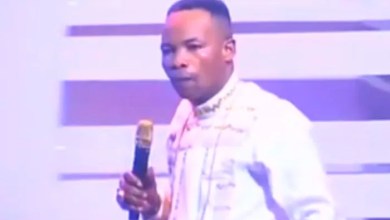“Attorney-General Urges African Investigative Bodies: Fearlessly Release Findings, Embrace Transparency”
The Attorney-General and Minister of Justice, Godfred Yeboah Dame, has urged investigative bodies in Africa to be bold to disclose to the public the full results of investigations into allegations of corruption against members of government which turn out to be untrue.

He said it would augur well for the fight if corruption allegations that turned out to be refuted or unsubstantiated were fully put out by investigative bodies. “This is one sure way to boost the confidence of the public in their government, reduce the suspicions, distrust and cynicism with which the public views office holders and boost the corruption perception index of our respective countries,” he stated at the opening of the 14th Commonwealth Regional Conference of Heads of Anti-Corruption Agencies in Africa in Accra last Monday.
It was a truism that not every public office holder was corrupt, Mr Dame told the conference which brought together heads of 24 anti-corruption agencies from 20 Commonwealth African countries.
The Attorney-General urged investigative authorities “to discard the view that the only way to remain relevant is by keeping the flame of allegations of corruption against public office holders burning, even if same, to their knowledge, are unfounded and in fact, baseless.”
Speaking on the theme for the regional conference – Strengthening Institutions in Promoting Transparency: A means of fighting Corruption in Commonwealth Africa – Mr Dame said the fight against corruption also required honesty and integrity in the disclosure of results.
“There must be the avoidance of sensationalism by all involved – investigative bodies, civil society, and the public,” he added.
Strengthening institutions
The conference was hosted by the Economic and Organised Crime Office (EOCO), in collaboration with the Commission on Human Rights and Administrative Justice (CHRAJ) and the Office of the Special Prosecutor, with support from the Commonwealth Secretariat.
It features discussions on innovative strategies and solutions to combat corruption.
The Attorney-General posited that transparency was the bedrock of integrity and the eradication of corruption. In that vein, he said, Ghana, under President Nana Addo Dankwa Akufo-Addo spearheaded the passage of the Right to information Act, 2019 (Act 989) to provide for the implementation of the constitutional right to information held by a public institution, to foster a culture of transparency and accountability in public affairs, subject to a few exemptions allowed by the law and which were necessary and consistent with the protection of the public interest in a democratic environment.
He also cited the boosting of the whistleblower regime by amending in 2023 the Whistleblower Act, 2006 (Act 720) to introduce a reward system for whistleblowers. On deterrent efforts in the fight against corruption, Mr Dame said Ghana had established systems for deterrence, undertaking of smooth investigations where same occurred and a sound vehicle for prosecution and punishment in a fair and efficient manner.
He cited other laws such as Revenue Administration (Amendment) Act, 2020 (Act 1029), Fiscal Responsibility Act, 2018 (Act 982), State Interests and Governance Authority Act, 2019 (Act 990), Anti-Money Laundering Act, 2020 (Act 1044), and Corporate Restructuring and Insolvency Act, 2020 (Act 1015) which were part of a raft of measures instituted to create a strong system for deterrence and elimination of corruption.
Exchange of ideas
The Executive Director of EOCO, Commissioner of Police (COP) Maame Yaa Tiwaa Addo Danquah, commended the government for its unwavering support in hosting the conference, acknowledging particularly the President’s commitment to tackle corruption and create a more just and equitable society.
She recognised the Head of Public Sector Governance of the Commonwealth Secretariat, Dr Roger Oppong Koranteng, the brainchild of the conference, for his efforts in leading the fight against corruption, and his dedication to promoting inter-agency collaboration and learning.
“This conference represents a pivotal moment for our collective efforts to address one of the most pressing challenges facing our nations. Corruption undermines the very fabric of our societies, corrodes public confidence in our institutions and suppresses economic development,”COP Addo Danquah said.
She said the delegates bore a solemn duty to confront the menace of corruption head-on and uphold the principles of integrity, rule of law, transparency and accountability.
Governance under pressure
The Assistant Secretary-General of the Commonwealth, Prof. Luis Franceschi, warned that governance was under pressure, and called for efficient and transparent governance to combat corruption.
He acknowledged the challenges faced by anti-corruption agencies in terms of their independence, in particular, stressing that they were often faced with the difficult situation of investigating those who appointed them.
“The fight against corruption today is not easy. We need to move quickly to address these challenges and ensure that governance is efficient, transparent and accountable,” Prof. Franceschi said.
The Deputy British High Commissioner to Ghana, Keith McMahon, however, insisted that the fight against corruption was crucial for global progress, saying corruption affected all, and needed to be addressed with partnership among countries.
For his part, Dr Koranteng hailed the progress made by the Association of Anti-Corruption Agencies in the Commonwealth (AAAC) in combating corruption across the globe, stressing the importance of collaboration and learning from one another’s experiences.







